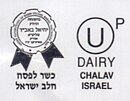Portal:Judaism/Featured Article/16
Kashrut is the set of Jewish dietary laws. Food that may be consumed according to halakha (Jewish law) is termed kosher. Among the numerous laws that form part of kashrut are the prohibitions on the consumption of unclean animals (such as pork, shellfish and most insects, with the exception of certain species of locusts), mixtures of meat and milk, and the commandment to slaughter mammals and birds according to a process known as shechita. There are also laws regarding agricultural produce. Most of these laws are derived from the Books of Leviticus and Deuteronomy. Their details and practical application, however, are set down in the Oral Torah (eventually codified in the Mishnah and Talmud) and elaborated on in the later rabbinical literature. While the Torah does not state the rationale for most kashrut laws, many reasons have been suggested, including philosophical, practical and hygienic. Presently, about a sixth of American Jews fully keep kosher, and many more abstain from some non-kosher foods, especially pork. Kashrut is also kept by some non-Jews, often for health reasons. (Read more...)

